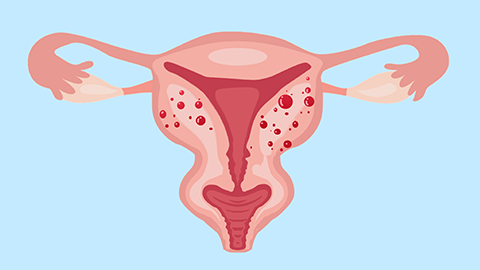What are the symptoms of endometriosis?
Generally, symptoms of endometriosis may include dysmenorrhea, menstrual irregularities, infertility, pelvic masses, and discomfort during sexual intercourse. If these symptoms occur, it is recommended to seek timely medical evaluation for an early diagnosis and appropriate treatment. The detailed analysis is as follows:
1. Dysmenorrhea
This is the most typical symptom of endometriosis. It is often secondary dysmenorrhea, meaning that there was no pain during menstruation previously, but pain began at some point and progressively worsened with the progression of the disease. The pain is typically located in the lower abdomen and sacral region and may radiate to the vagina, perineum, anus, or thighs. It often begins 1-2 days before menstruation starts, peaks on the first day of the period, gradually subsides afterward, and disappears when the menstrual period ends. In severe cases, patients may experience unbearable pain that affects their normal work and life, requiring analgesic medication for relief.

2. Menstrual irregularities
Some patients may experience menstrual cycle disturbances, increased menstrual flow, or prolonged menstrual periods. This may occur because ectopic endometrial tissue affects the normal function of the ovaries, leading to hormonal imbalances, which subsequently affect the menstrual cycle and volume. Additionally, endometriosis may cause abnormal contractions of the uterine muscle layer, resulting in poor menstrual blood discharge and prolonged menstruation.
3. Infertility
Among patients with endometriosis, the incidence of infertility is relatively high. This is because ectopic endometrial tissue can alter the microenvironment of the pelvis, leading to pelvic adhesions, fallopian tube blockage, or abnormal tubal motility, which affect the release, pickup of eggs, and transportation of fertilized eggs. Meanwhile, ectopic endometrial tissue may also secrete certain inflammatory factors that impair ovarian function and egg quality, thereby reducing the chances of conception.
4. Pelvic mass
When ectopic endometrial tissue grows within the ovaries, it can form ovarian endometriotic cysts. These cysts vary in size, with diameters commonly ranging from 5 to 6 cm, although some may reach 10-20 cm. Patients may detect a mass during a pelvic examination; these masses are usually cystic, firm in texture, poorly mobile, and often tender. Sudden severe lower abdominal pain accompanied by nausea, vomiting, and other symptoms may occur if the cyst ruptures, requiring emergency treatment.
5. Discomfort during sexual intercourse
During sexual intercourse, due to contact with ectopic endometrial lesions, patients may experience pain during sex. The pain is often deep-seated and more pronounced before menstruation. This can impact the patient's sexual quality of life and may even lead to fear and avoidance of sexual activity.
In daily life, it is important to maintain good habits, avoid excessive fatigue, and reduce the risk of pelvic infections, which can help prevent and alleviate symptoms.






